
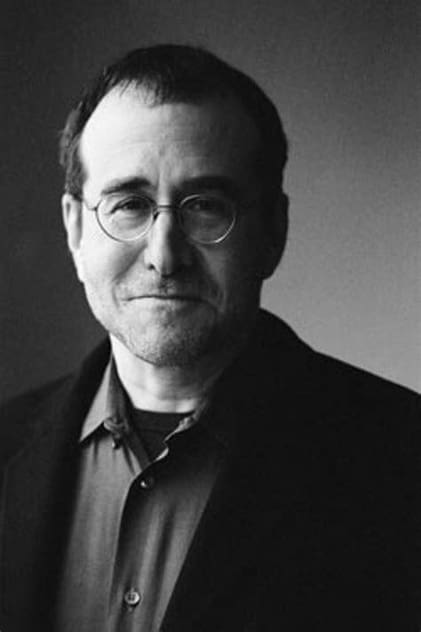
Mark Crispin Miller
Mark Crispin Miller is a Professor of Media, Culture and Communication at New York University. He is the author of several books, including Boxed In: The Culture of TV (1988), The Bush Dyslexicon: Observations on a National Disorder (2001), Cruel and Unusual: Bush/Cheney’s New World Order (2004), and Fooled Again: The Real Case for Electoral Reform (2007). He is also the editor of Seeing Through Movies (1990), and Loser Take All: Election Fraud and the Subversion of Democracy, 2000-2008 (2008). He is currently at work on The Marlboro Man: An American Success Story, which will be published in 2021. Miller’s essays and articles have appeared in many journals, magazines and newspapers throughout the nation and the world, and he has given countless interviews worldwide, appearing in many documentaries, including Consuming Images (1989), The Merchants of Cool (2001), Orwell Rolls in His Grave (2003) and The True Cost (2015).
Miller is the editor of Forbidden Bookshelf, an e-book series that revives important works now out of print, most of which were variously killed at birth. Earlier he was the editor of two book series: Discovering America, published by the University of Texas Press, and, prior to that, Icons of America, published by Yale University Press.
In 2004, Miller wrote Patriot Act, a show that he performed for six weeks at the New York Theater Workshop. He is currently co-producing Four Died Trying, a documentary series on the assassinations of JFK, Malcolm X, Robert F. Kennedy and Martin Luther King, Jr.
A recipient of fellowships from the Rockefeller, Ingram Merrill and Guggenheim Foundations, Miller is on the board of the Organisation for Propaganda Studies, an international consortium of scholars, and the Alliance for Human Research Protection, whose goal is to prevent, or correct, violations of informed consent in medical research.
Miller earned his bachelor’s degree from Northwestern University in 1971, and his doctorate in English from Johns Hopkins University in 1977. Although he specialized in Renaissance literature, Miller is best known as a media critic. Before joining New York University, Miller served as director of film studies at Johns Hopkins University.
Miller is the editor of Forbidden Bookshelf, an e-book series that revives important works now out of print, most of which were variously killed at birth. Earlier he was the editor of two book series: Discovering America, published by the University of Texas Press, and, prior to that, Icons of America, published by Yale University Press.
In 2004, Miller wrote Patriot Act, a show that he performed for six weeks at the New York Theater Workshop. He is currently co-producing Four Died Trying, a documentary series on the assassinations of JFK, Malcolm X, Robert F. Kennedy and Martin Luther King, Jr.
A recipient of fellowships from the Rockefeller, Ingram Merrill and Guggenheim Foundations, Miller is on the board of the Organisation for Propaganda Studies, an international consortium of scholars, and the Alliance for Human Research Protection, whose goal is to prevent, or correct, violations of informed consent in medical research.
Miller earned his bachelor’s degree from Northwestern University in 1971, and his doctorate in English from Johns Hopkins University in 1977. Although he specialized in Renaissance literature, Miller is best known as a media critic. Before joining New York University, Miller served as director of film studies at Johns Hopkins University.
Movies for Mark Crispin Miller...
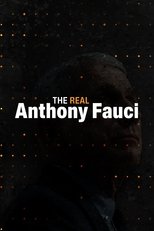
Title: The Real Anthony Fauci
Character: Self - Professor of Media Studies at New York University
Released: October 18, 2022
Type: Movie
Different experts make a stand against today's putatively criminal and harmful health system, focusing on Anthony Fauci and his role in the shaping of the AIDS and COVID-19 epidemics. The Real Anthony Fauci - based on the book by Robert F. Kennedy Jr.

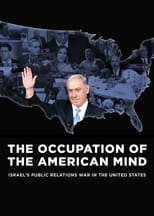
Title: The Occupation of the American Mind
Character: Self - Professor, New York University
Released: January 19, 2016
Type: Movie
Over the past few years, Israel's ongoing military occupation of Palestinian territory and repeated invasions of the Gaza strip have triggered a fierce backlash against Israeli policies virtually everywhere in the world—except the United States. This documentary takes an eye-opening look at this critical exception, zeroing in on pro-Israel public relations efforts within the U.S.

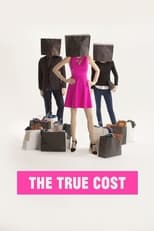
Title: The True Cost
Character: self
Released: May 29, 2015
Type: Movie
Film from Andrew Morgan. The True Cost is a documentary film exploring the impact of fashion on people and the planet.

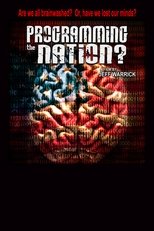
Title: Programming the Nation?
Character: Self
Released: August 19, 2011
Type: Movie
Programming the Nation? takes an encompassing look at the history of subliminal messaging in America. According to many authorities, since the late 1950s subliminal content has been tested and delivered through all forms of mass-media including Hollywood filmmakers Alfred Hitchcock and William Friedkin. Even our modern military has been accused of these practices in the "war on terror" against soldiers and civilians both abroad and at home. With eye-opening footage, revealing interviews, humorous anecdotes, and an array of visual effects, the film categorically explores the alleged usage of subliminals in advertising, music, film, television, anti-theft devices, political propaganda, military psychological operations, and advanced weapons development. Director Jeff Warrick makes it his personal mission to determine if these manipulative tactics have succeeded in "programming the nation?" Or, if subliminal messaging belongs in the category of what many consider urban legend.

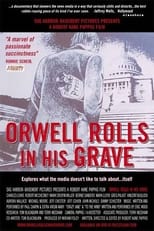
Title: Orwell Rolls in His Grave
Character: Himself, Professor at New York University
Released: October 23, 2003
Type: Movie
Has America entered an Orwellian world of doublespeak where outright lies can pass for truth? The country's leading intellectuals discuss and examine the mix of businesses, politics and ideology that is the mainstream media.

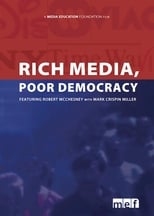
Title: Rich Media, Poor Democracy
Character: Himself
Released: January 1, 2003
Type: Movie
Robert McChesney lays the blame for the US's current state of affairs squarely at the doors of the corporate boardrooms of big media, which far from delivering on their promises of more choice and more diversity, have organized a system characterized by a lack of competition, homogenization of opinion and formulaic programming.

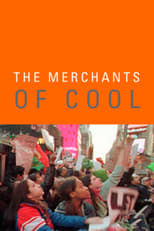
Title: The Merchants of Cool
Character: Self
Released: February 27, 2001
Type: Movie
A documentary on the marketing of pop culture to Teenagers.


Title: Behind the Screens, Hollywood Goes Hypercommercial
Character: himself
Released: January 1, 2000
Type: Movie
Hollywood movies are rapidly becoming vehicles for the ulterior marketing and advertising motives of studios and their owners, rather than entertainment in their own right. Behind the Screens explores this trend toward "hypercommercialism" through phenomena such as product placement, tie-ins, merchandising and cross-promotions. It combines multiple examples taken directly from the movies with incisive interviews provided by film scholars, cultural critics, political economists, and an Oscar-nominated screenwriter. Behind the Screens presents an accessible argument designed for school and college-age audiences-- precisely the demographic most prized by both Hollywood studios and advertisers alike. It features examples drawn from movies such as Wayne's World, Forrest Gump, The Lion King, Summer of Sam, and Toy Story.
